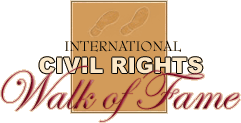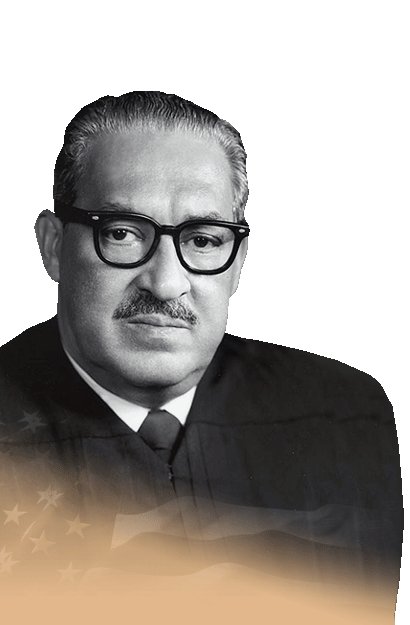 |
 |
 |
 |


| ||||||
|
Thurgood Marshall, who became the first African-American Supreme Court Justice (1967-1991), knocked down legal segregation in America as a civil rights attorney. As Chief Counsel of the National Association for the Advancement of Colored People (NAACP) Legal Defense and Education Fund (1940-1961), Marshall successfully argued Smith v. Allwright, which ended the "white primary" in southern states in 1944. He also won the landmark Brown v. the Board of Education in 1954, which outlawed segregated schools and paved the way for the integration of all public facilities and businesses. His victories ultimately created legal protections for women, children, prisoners, and the homeless. President John Kennedy appointed Marshall to the U.S. Court of Appeals for the Second Circuit (1961-1965). In 1965 President Lyndon B. Johnson appointed Marshall the first African American Solicitor General of the United States (1965-1967). Two years later, President Johnson nominated Marshall to the Supreme Court. He was confirmed in spite of protest from southern U.S. senators. In the conservative era of the 1970s and 1980s, Marshall became known as "the great dissenter" for his vigorous opposition to majority Supreme Court decisions he believed violated human and civil rights. Marshall, the son of a steward and schoolteacher, was named Thoroughgood Marshall after his paternal grandfather, a former slave. The headstrong child shortened his name to Thurgood in elementary school. His father William Marshall was the first African American to serve on a grand jury in Baltimore in the 20th century and regularly took his son to watch court cases. When he misbehaved, Thurgood had to recite parts of the U.S. Constitution. Marshall graduated from high school at 16, married Vivien Burey in 1929, and earned his college degree from Lincoln University in 1930. After the University of Maryland Law School turned down his application because of his race, Marshall entered the Howard University Law School. He graduated first in his class in 1933. That year he opened a practice and won a lawsuit that integrated the University of Maryland. Marshall joined the NAACP defense team in 1936. Marshall's first wife Vivien died in 1955. He and his second wife Cecilia had two sons. The University of Maryland Law Library bears the name of the Supreme Court Justice, as does Thurgood Marshall College of the University of California, San Diego. |